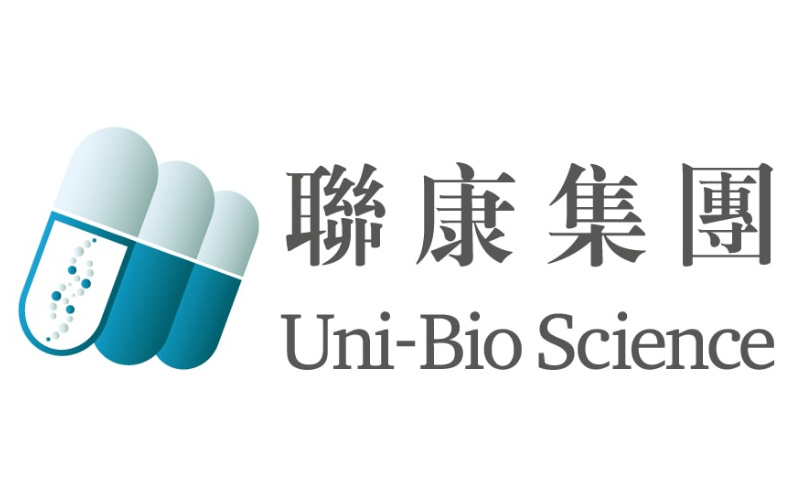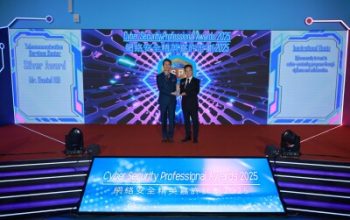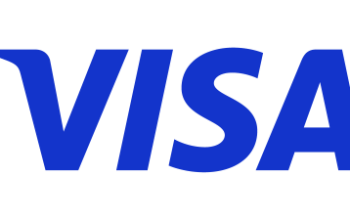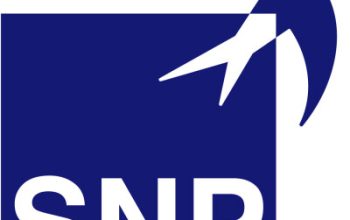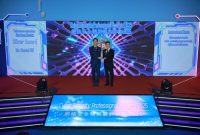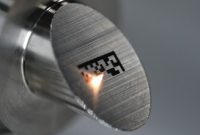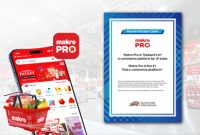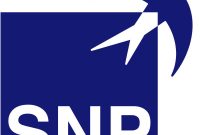HONG KONG SAR – 10 March 2021 – A fully integrated biopharmaceutical company — Uni-Bio Science Group Limited (the “Company”, together with its subsidiaries, the “Group”; Stock code: 00690.HK) is pleased to announce that the company and DotBio Pte. Ltd. (“DotBio”) formed a partnership to co-develop next generation, best-in-class therapeutics for patients with retinal diseases, such as age-related macular degeneration (AMD), diabetic macular edema (DME), retinal vein occlusion (RVO), and myopic choroidal neovascularization (mCNV). These diseases are major causes of visual impairment and blindness worldwide.
The partnership will involve a close collaboration between the two companies. Under the agreement, DotBio’s Hong Kong subsidiary, DotBioHK, is responsible for generating multiple multi-valent and/or bi-specific stabilized and humanized single-domain antibody candidates for various targets using DotBio’s proprietary DotBody technology. Uni-Bio is responsible for Chemical Manufacturing Control (CMC), Investigation New Drug (IND) submission, clinical trial and commercialization. DotBio will receive upfront and research payments, and is eligible for milestones and royalties, with the option to obtain additional stakes in these projects by participating in their later-stage development.
According to Frost & Sullivan, the patient populations of major eye diseases in China were much larger than those in the United States, whereas the size of China’s ophthalmic drug market accounted for only one-fifth of that of the United States in 2019, indicating a strong growth potential of China’s ophthalmic drug market. Among the four types of retinal diseases, prevalence of wet AMD increased more rapidly than the other three because of aging population.
The majority of patients with wet AMD experience severe vision loss in the affected eye within approximately two years after diagnosis of the disease. The prevalence of wet AMD in China was 3.4 million in 2017 and is expected to reach 4.0 million in 2022 and 4.8 million in 2030. We believe that there is a significant commercial demand for the treatment of Wet AMD. As people are gaining awareness on the importance of eye examination, they can be given access to the life-changing, sight-saving therapies. The unmet needs in the AMD market are set to be addressed in the coming years.
“We are excited to collaborate with Uni-Bio to explore the potential of our DotBody technology in the ophthalmology space. Our stabilized and humanized VH domains, also known as “DotBodies”, are a superior alternative to the camelid-derived VHH domains (“nanobodies”), by being generated synthetically without the use of animals, and being derived from human VH domain sequences present in normal monoclonal antibodies. These DotBodies have properties that make them superior in many ways compared to conventional antibodies. They are the smallest known human antibody fragments that are still capable of antigen binding with high affinity and specificity. They are also highly modular, allowing the rapid development of multi-valent and multi-specific therapies. We expect their use in a growing number of applications including ophthalmology because of these unique properties.” said Dr. Ignacio Asial, CEO and Founder of DotBio.
“Being competitive in the biotechnology industry requires innovation across multiple verticals. We want to combine different protein engineering and formulation technologies together to create unique products with a competitive edge in the clinic. In addition, Uni-Bio has a wealth of experience in fermentation /purification/QA/QC of E.coli-expressed proteins. Therefore, we are capable to “scale up” and commercialize products effectively. In the past, the Group has also successfully launched ophthalmology biologic product such as GeneSoft™ eye drop. We hope to replicate the same success in the next generation products co-developed with DotBio.” said Mr. Kingsley Leung, Chairman of Uni-Bio Science Group.
About wet AMD (age-related macular degeneration)
Age-related macular degeneration (AMD) is a condition that affects the part of the eye that provides sharp, central vision needed for activities like reading. Neovascular or “wet” AMD is an advanced form of the disease that can cause rapid and severe vision loss.
It develops when new and abnormal blood vessels grow uncontrolled under the macula, causing swelling, bleeding and/or fibrosis. Worldwide, around 20 million people are living with wet AMD — the leading cause of vision loss in people over the age of 60 — and the condition will affect even more people around the world as the global population ages.
About Uni-Bio Science Group
Uni-Bio Science Group Limited is principally engaged in the research and development, manufacture and distribution of biopharmaceutical products. The research and development center is fully equipped with a complete system for the development of genetically-engineered products with a pilot plant test base which is in line with NMPA requirements. The Group has two GMP manufacturing bases in Beijing and Shenzhen.
The Group also has a highly efficient commercialization platform and marketing network. The Group focuses on the development of novel treatments and innovative drugs addressing the therapeutic areas of endocrine such as diabetes and osteoporosis, ophthalmology and dermatology. Please visit the official website of Uni-Bio Science Group for more information: www.uni-bioscience.com/
About DotBio Pte. Ltd.
DotBio is a highly innovative biopharmaceutical company with a mission to harness next-generation antibody technologies to bring more effective therapies to patients. DotBio takes an innovative therapeutic approach towards the ideal treatment: the rapid prototyping of multi-functional antibodies to identify molecules with synergistic activity combinations, optimal architectures and unique modes of action. DotBio’s approach involves the use of its modular DotBody technology platform, its CoFi and Hot-CoFi stabilization technologies, high-throughput miniaturized assays and data analytics to generate unique therapeutic molecules that target both extracellular and intracellular disease drivers. DotBio is a platform company with a growing portfolio of assets, including numerous target-specific Dot antibody modules, as well as numerous pre-clinical assets in the immuno-oncology field. Please visit DotBio’s website for more information: www.dotbio.com


